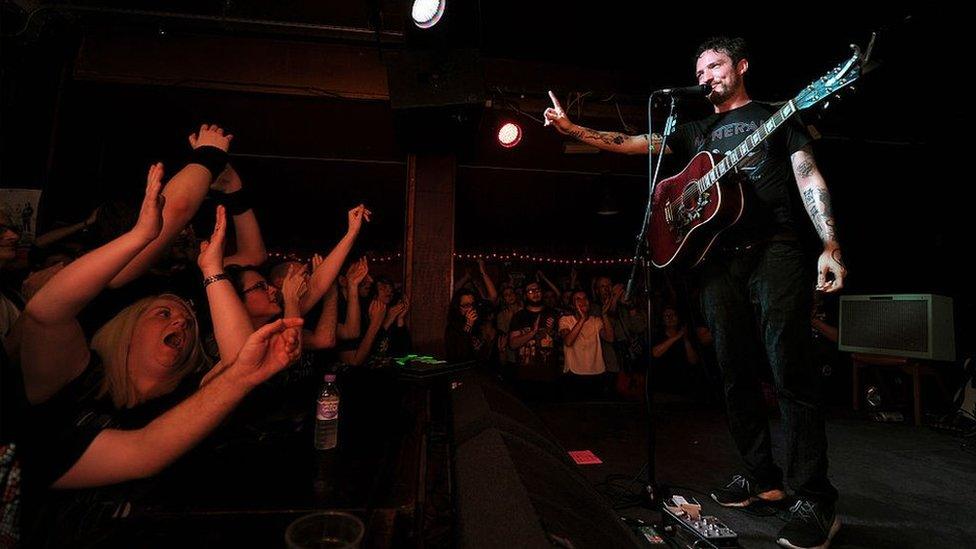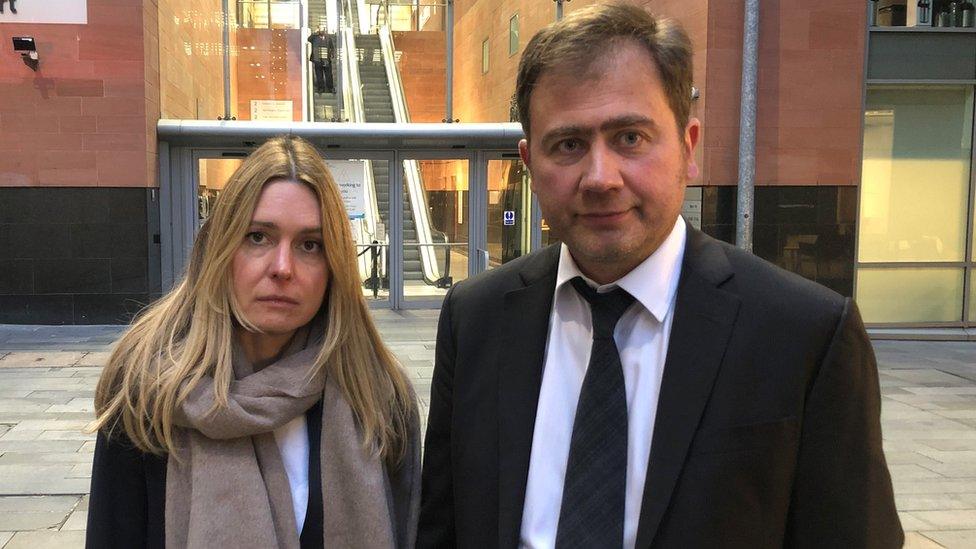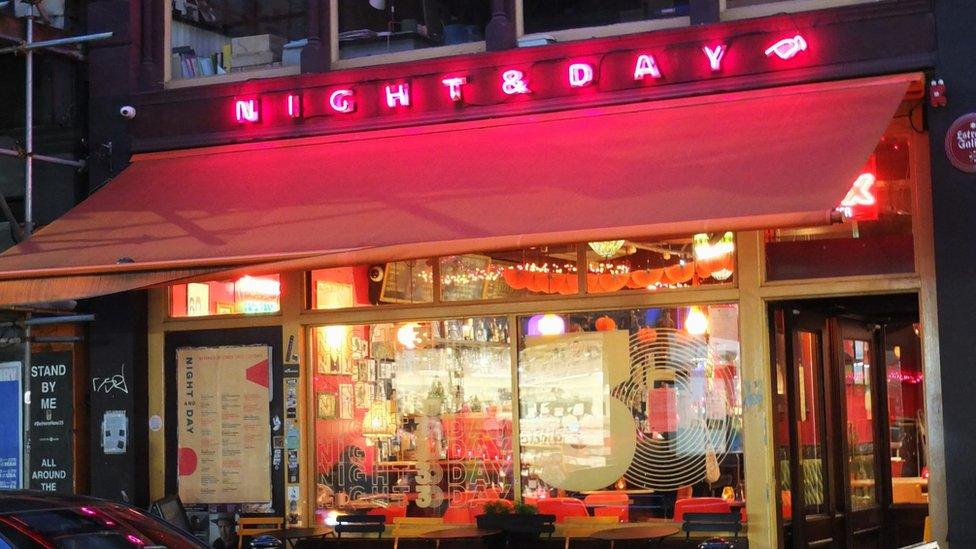Night & Day: Manchester venue's possible closure terrifying, court told
- Published

The venue has hosted shows from hundreds of performers, such as Elbow, Wet Leg and Frank Turner (above)
The owner of much-loved music venue has told a court of her "shock" that the business could be closed down after 30 years due to a noise complaint.
Jennifer and Ben Smithson, who own Manchester's Night & Day Cafe, have appealed a noise abatement notice served by the city's council in 2021.
Ms Smithson told city magistrates the thought it could be taken away was "absolutely terrifying".
The court was told the venue had not stuck to its own noise management plan.
Night & Day Cafe has been part of Manchester's music scene since the early 1990s and has hosted a wide array of well-known bands as they rose to fame, including Elbow, Arctic Monkeys, Wet Leg and Kasabian.
However, the Local Democracy Reporting Service said it was served with the council notice in November 2021, following a complaint from a neighbouring flat.
The council has previously said it had "never threatened to close down" the venue, "nor is there any legislation which would allow a noise abatement notice to be used to close a premises".
'National scandal'
The court was told the residents moved in during the pandemic and complained about the noise levels on the first night that the venue reopened in July 2021.
Wiping away tears, Mrs Smithson told the court she was "in shock", adding: "I can't understand why the council thinks Night and Day have done something wrong."
"I'm at a loss as to why I'm sat here in a courtroom," she said.
"We're running our business in the same way for 31 years and I thought the council would be really proud of what we've done for the city of Manchester."

Venue co-owner Jennifer Smithson (above, with husband Ben) told the court installing noise limiters was not practical
More than 94,000 people have signed a petition to remove the notice and it has had support from musicians across the country.
Representing the venue, Sarah Clover said the situation was a "national scandal" and the council were the "poster child" for this new "phenomenon".
Peter Rogers, an acoustic expert called by the venue to give evidence, told the court that noise complaints from new developments were increasingly common.
However, he said the council's planning department should have done more to prevent the issue after the development was approved in 2000.
He said that a bedroom which shares a wall with the venue has such "poor" sound insulation that even the higher frequency vocals could be heard and the only way to address the issue would be to effectively create a "box within a box" in the flat to insulate it from the sound.
"It might have been a very expensive solution which required concrete and springs... but the reality is that would have been needed as a viable solution," he said.
"And if it wasn't, why was it permitted?"
He said he had observed how the venue's sound engineers operated and was satisfied that it was doing all it reasonably could to keep noise down.

As the name suggests, the venue is a cafe bar during the day and hosts music shows and club nights in the evening
Mrs Smithson added that installing noise limiters, which would cut the music when it exceeded a certain level, would mean musicians would not play at the venue.
"Why would someone play when they could be cut off halfway through the set?" she said.
Representing the council, Leo Charalambides said the venue had not stuck to its own self-imposed decibel limits under its noise management plan.
He said the venue's approach was "entirely based on your business needs, rather than the condition of your licence, that is not to cause nuisance or disturbance to your neighbours".
The hearing, which is expected to last three days, continues.

Why not follow BBC North West on Facebook, external, Twitter, external and Instagram, external? You can also send story ideas to northwest.newsonline@bbc.co.uk, external
Related topics
- Published29 November 2022

- Published26 October 2022

- Published25 August 2014
